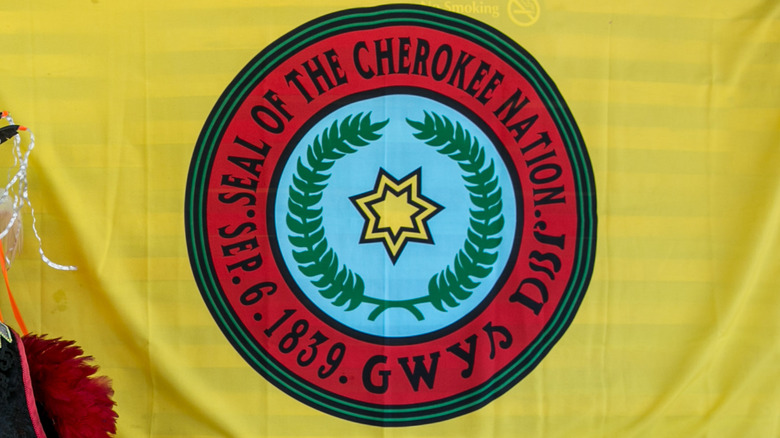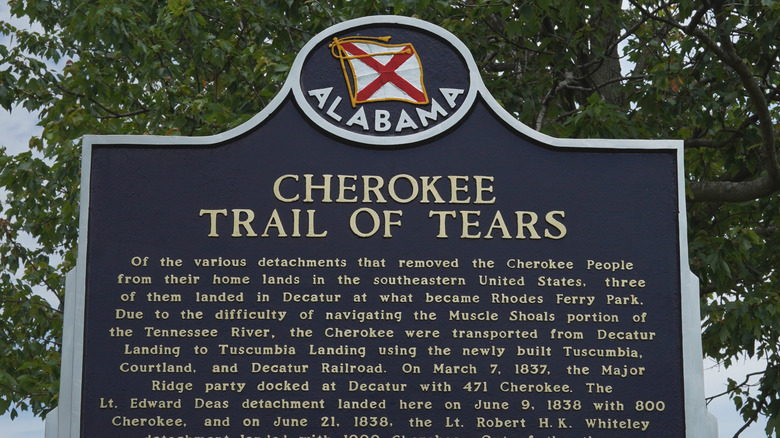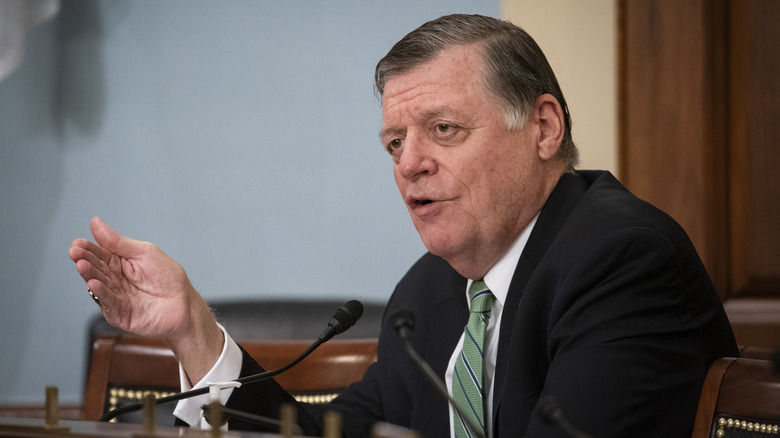Why The Cherokee Nation Might Finally Get A Congressional Seat
Throughout the course of history, political borders have often not existed where ethnic groups actually lie. People like the Kurds do not have a "Kurdistan" to call home (per Britannica). Instead, Kurdistan is a region rather than a country, but does have two autonomous sections of land within Iran and Iraq.
Native American tribes in the United States have long dealt with similar issues. The Cherokee Nation occupies a region of northwest Oklahoma which is governed by the Cherokee tribe, including a constitution. Despite the fact that they are the largest tribal nation in the U.S. (per the Cherokee website), there is not a state in the U.S. named for them and there are no federal representatives elected specifically for the tribe. The land still falls under the state of Oklahoma's borders.
The Cherokee people were among the multiple tribes forced to relocate during the deadly Trail of Tears in the 1830s. President Andrew Jackson enacted the Indian Removal Act. This Act sent tribespeople to Indian Territory in present-day Oklahoma. Many starved on their treks to Indian Territory.
Thousands of Cherokee Indians died on the Trail of Tears
The Cherokee Nation signed an agreement with the United States federal government in 1835 called the Treaty of New Echota. Other than forced removal to Indian Territory, the treaty also included a promise to the Cherokees that they would have a delegate in Congress. This part of the treaty has gone unfulfilled for nearly two centuries. What prompted the tribe to revisit the issue was the nomination of Kim Teehee for the job if Congress upholds their end of the deal. Given the consequences of the Trail of Tears, during which around 4,000 Cherokee Indians died, Teehee believes the treaty still has relevance (per NPR).
The Cherokee Nation states that "the Treaty of New Echota has no expiration date." Principal Chief Chuck Hoskin Jr. nominated Teehee to be the first delegate to Congress. She has already spent time with policymakers in Washington D.C. and is the director of Government Relations for the tribe.
Oklahoma representative Tom Cole supports the Cherokees
According to the Treaty of New Echota, the delegate from the Cherokee Nation would not be able to vote, but would have speaking privileges and could vote in committees. If Congress does grant the Cherokee Nation a delegate spot in the House of Representatives, the delegate would join other nonvoting members of Congress who represent places like Puerto Rico, American Samoa, Guam, and the U.S. Virgin Islands (per NPR).
The Washington Post explains that out of the members of Congress who do have the ability to vote, only six are members of a tribal nation. The House Rules Committee includes Chickasaw Nation member Tom Cole (above), an Oklahoma Congressman who supports the Cherokees in their efforts to see the treaty fulfilled. However, he explained that everyone in Congress is elected by the people rather than appointed by a government leader, as Kim Teehee was when Principal Chief Chuck Hoskin Jr. chose her. Such a deviation from the normal ascent to a seat in Congress may not go over well. Still, the House Rules Committee wants to have a hearing to discuss the delegate issue later in 2022.


